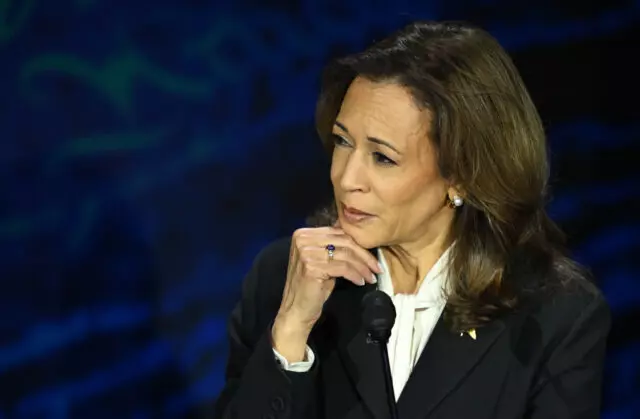Vice President Kamala Harris recently accused President Donald Trump of proposing a national sales tax, referring to it as the “Trump Sales Tax,” and claiming that it would add an additional 20% to the cost of goods. This claim has been proven false; the president has not proposed any such tax. Instead, Harris likely referred to Trump’s proposal to raise tariffs on imports, which are fees paid by companies importing goods from abroad and not consumers themselves.
Tariffs function differently than a traditional sales tax, as they are primarily borne by importers rather than consumers. Studies conducted during Trump’s 2017-2021 term have demonstrated that the impact of tariffs is often shared between importers and exporting countries, but the costs do not typically reach consumers or act as a tax on households. This was evident in the minimal increase in consumer inflation rates observed during Trump’s time in office.
As Breitbart Business Digest explained, when President Trump entered office with a promise to renegotiate international agreements and impose tariffs, many critics warned of an impending trade war and predicted that these tariffs would negatively impact the U.S. economy and raise consumer prices. These claims were based more on speculation than concrete evidence, as it had been generations since the United States utilized a significant tariff strategy.
However, economic theory supports Trump’s assertion that tariffs are often paid for by the exporting countries rather than the importing ones. According to trade theory, when a large economy like the United States imposes tariffs, it typically drives down foreign prices as exporting nations have no other choice but to offload their excess production. This phenomenon is known as the Metzler Paradox, first proposed by economist Lloyd Metzler in 1949.
Furthermore, price theory suggests that tariffs are unlikely to raise consumer prices. While many people imagine that the prices they pay at checkout are a direct reflection of their product’s input costs, the reality is quite different. Consumer demand dictates the final product’s price, which then determines the prices of the components and labor involved in manufacturing it. Therefore, when a tariff raises the cost of imports, merchants in a competitive economy cannot pass on these additional costs to consumers.
Even if the costs of tariffs were somehow passed onto consumers, imports account for only a small portion of overall consumer purchases, so the effect would not be substantial enough to warrant being considered a national sales tax. Similar claims that tariffs would raise consumer prices were made in 2019 when Trump imposed new tariffs, but these predictions did not materialize.

